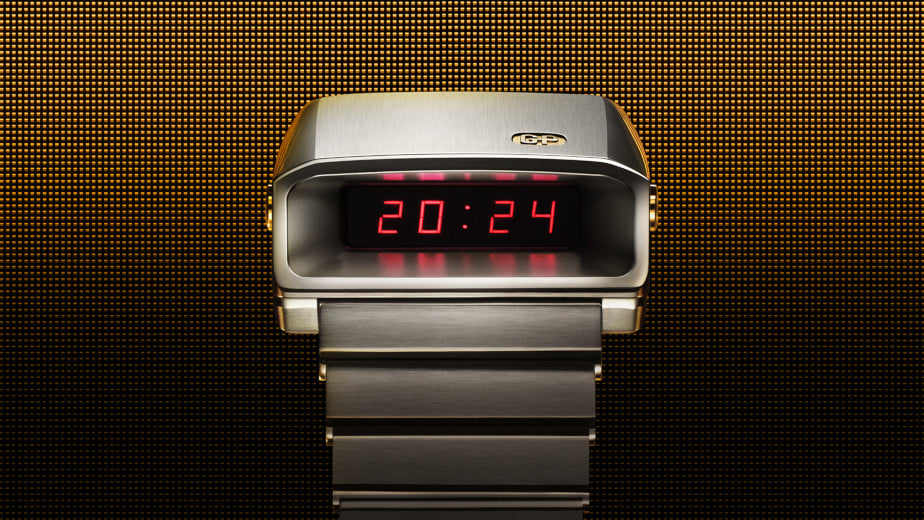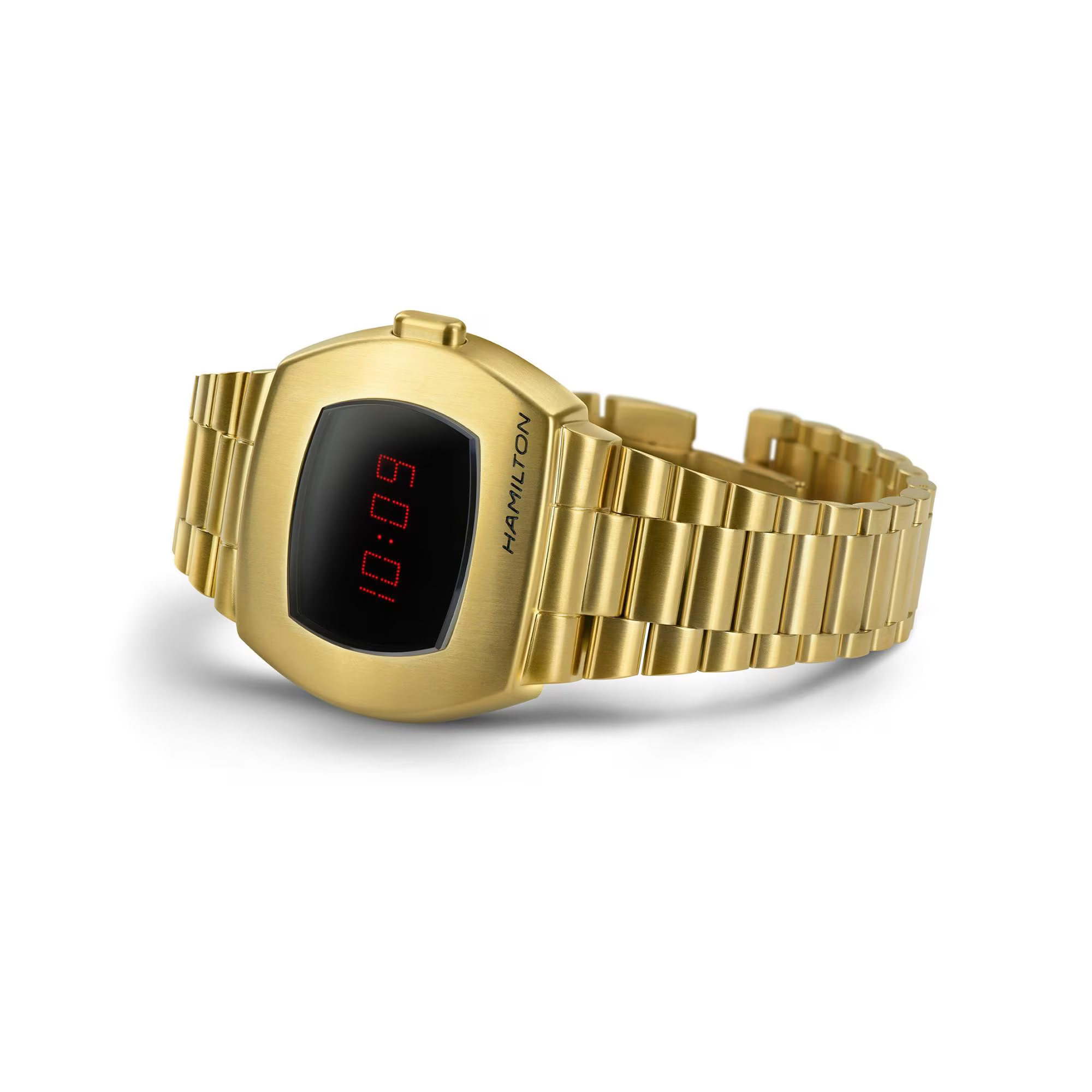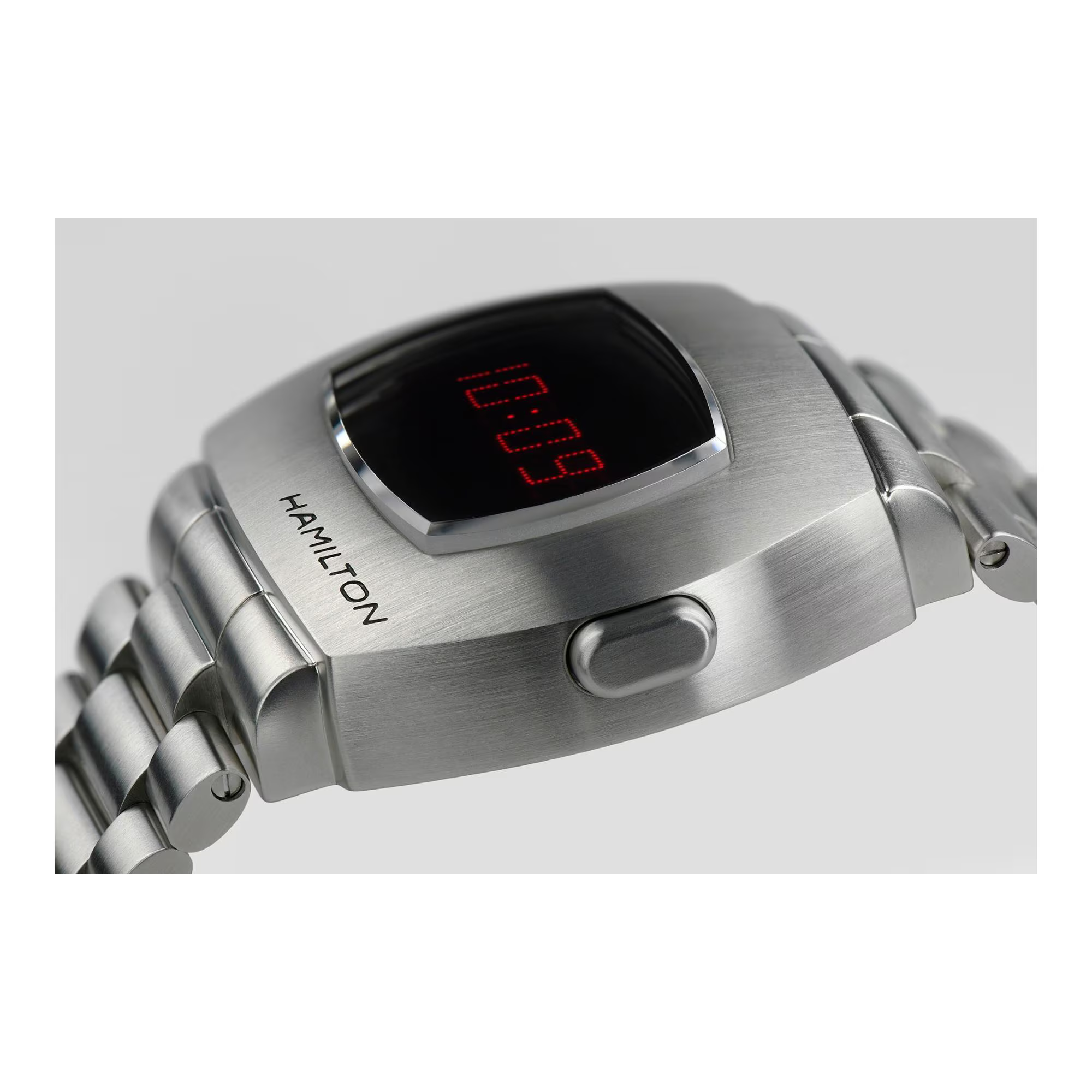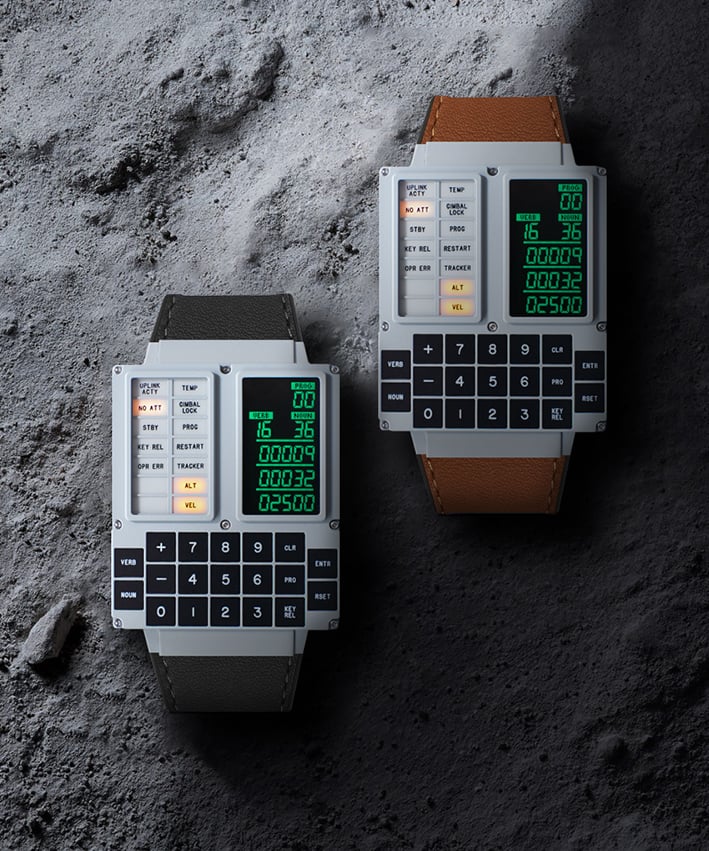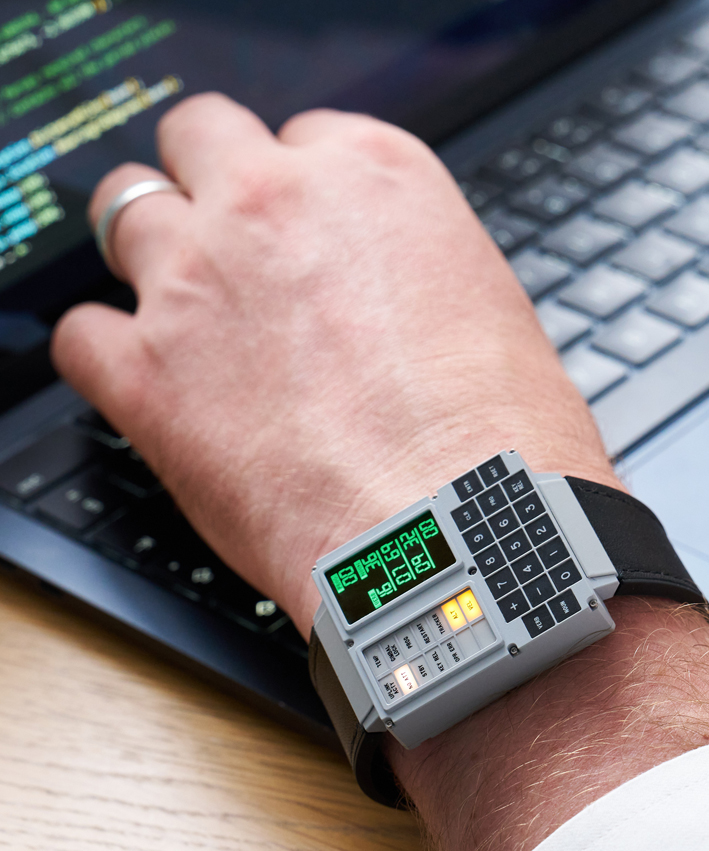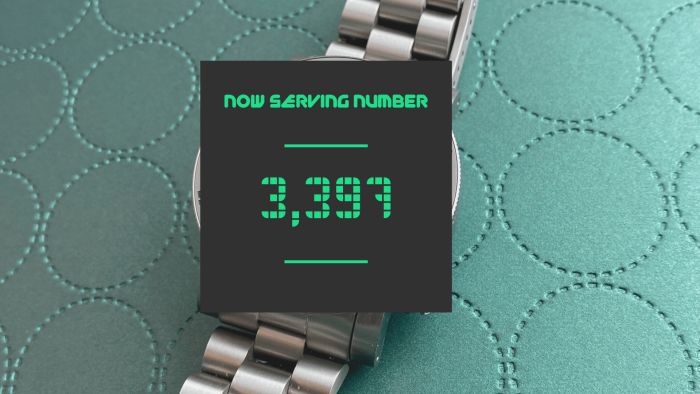Last year, I randomly found myself at the UK Engineering Design Show. My friend had an extra pass and the expo was on my way home, but I doubted any exhibitors would interest me. Then, I walked by booth H46. There sat the Apollo Instruments DSKY, a Moonwatch modeled after the Apollo Guidance Computer.
A new non-chronograph Moonwatch unrepentantly based on a 15-bit device from the ‘60s? If that isn’t a sign that retrofuturistic watches are blowing up, nothing is. I, for one, am ecstatic. Retrofuturism is endearingly distinct from simply retro or just futurism. Unlike retro, it doesn’t just evoke the past, but the past’s vision of the future. There’s an inherent hope and imagination to it. And unlike futurism, a rejection of traditionalism and bygone eras, space-age sensibilities welcome nostalgia.
The best part about the world of retrofuturistic watches is that excellent choices are available at every price point, from Casio to MB&F. In celebration of this optimistic aesthetic’s comeback, here are some options for every budget.

Under $100: Casio Vintage A100 Series
No watchmaker proves that esteemed icons can exist in the sub-100 realm like Casio does. Who doesn’t find the Vintage A100 series charming? It’s the descendant of the F-100, the brand’s first resin model, and the source material for Ellen Ripley’s timepiece in the film Alien. Personally, I love the different-colored bars near the buttons. The calculator-esque silhouette, sleek integrated bracelet, and overall shine are classic retrofuturism. However, the pops of color give it a Nintendo-esque character. Brand importance? Check. Pop-culture caché? Check. Standard yet unique? Checkmate.
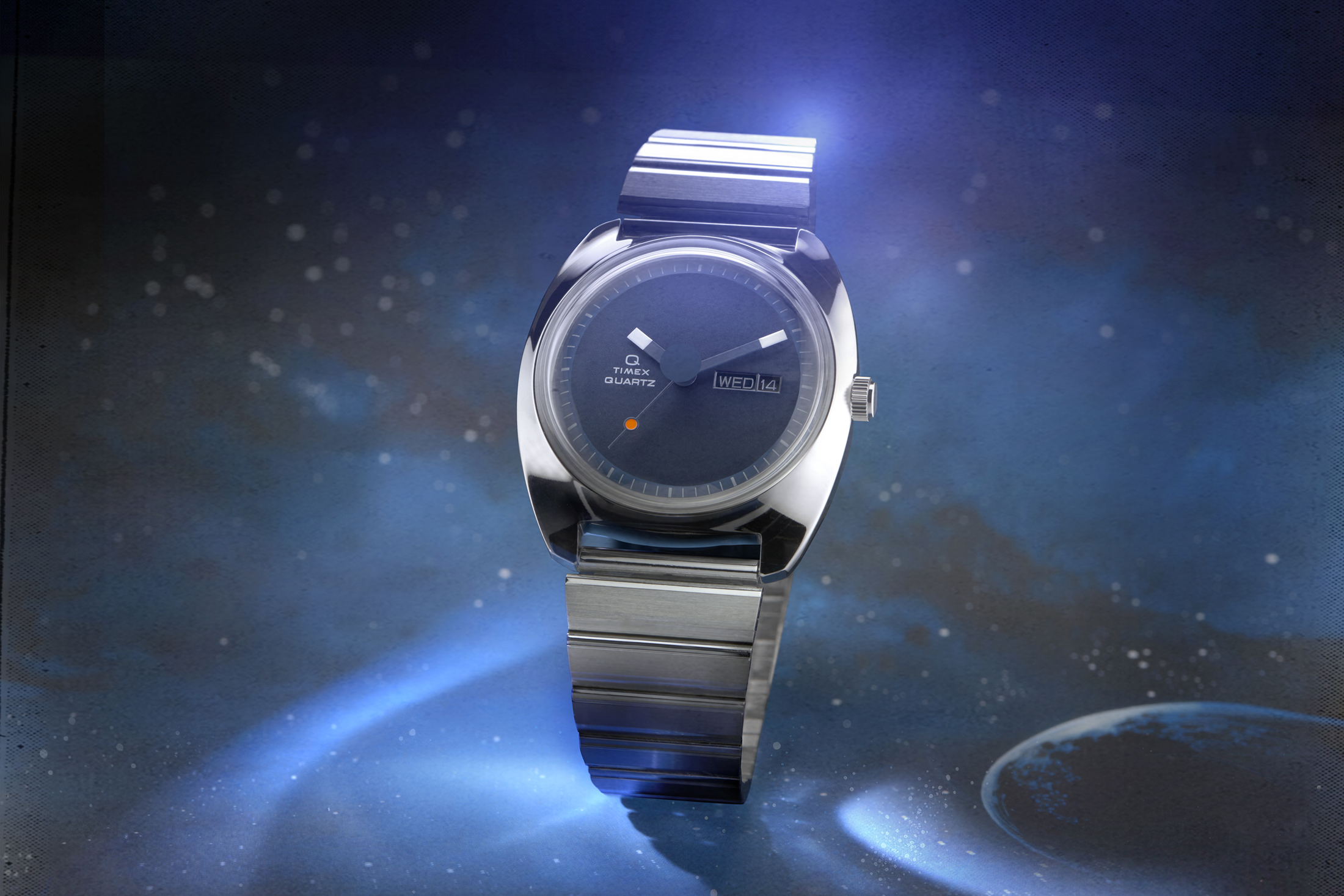
Image via Timex
Under $200: Q Timex 1975 Enigma Reissue
My two favorite parts about the Q Timex Enigma are the cheerful orange lollipop second hand and that defiantly domed crystal. The Enigma is essentially a sophisticated take on The Jetsons design language—its profile really reminds me of George and Jane’s aerocars. This budget piece is a faithful reissue of Timex’s 1975 Mystery Dial watch. It was cleverly renamed to Enigma since it doesn’t really qualify as a true mystery dial by contemporary standards. (With a true mystery dial, the applications seem to float, unattached from the watch face.) Admittedly, the lume isn’t fantastic, but its all-polished 37-millimeter case easily makes it one of the most versatile options here. A truly nuclear glow would disqualify it from being an effective dress watch.
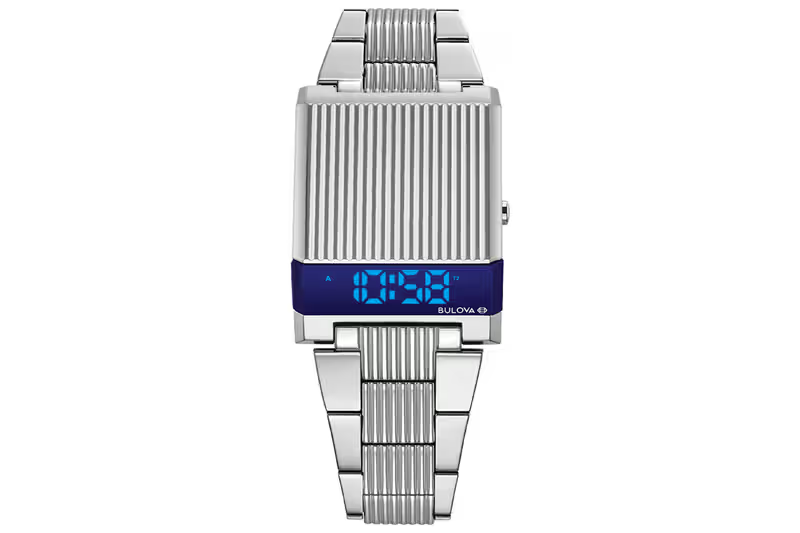
Photo via Bulova
Under $300: Bulova Computron Series
I boldly proclaim the Bulova Computron to be the best watch for avoiding doom scrolling. Between its bright digital face and the display’s angled, side positioning, you can check the time from your periphery. Isn’t that more convenient than pulling your phone out of your pocket? The trapezoidal composition of Bulova’s first LED watch has become a go-to example of retrofuturism. It has a ‘70s swank while also being delightfully strange. And speaking of strange delights, I’ve changed my Computron’s battery in public just to show off that coin hatch. If you want something that leans even harder into science-meets-sci-fi, the D-CAVE edition’s exposed circuit board and green-and-black palette look like something right out of Tron.
Under $800: Hamilton American Classic PSR
This is the one that started it all. I imagine that when the Hamilton PSR debuted in 1970, it was accompanied by the monumental “Also sprach Zarathustra” instrumental from 2001: A Space Odyssey. It certainly would’ve been playing in my head. Appropriately in Hamilton’s American Classics family, the PSR undeniably belongs on the Mount Rushmore of retrofuturistic watches—of the retrofuturist aesthetic as a whole, even. It represents the birth of the light-emitting diode timepiece (otherwise known as the LED watch), making it an important, historical model. Moreover, the push-button activation adds a fun level of engagement.
Under $1,000: Apollo Instruments DSKY Moonwatch
While so much of retrofuturistic design is based on predictive technology, Apollo Instruments modeled the DSKY Moonwatch after an actual, non-speculative computer from the past. Still, it characterizes retrofuturism in the sense that the Apollo Guidance Computer, which was installed in every Apollo Lunar Module, was lightyears ahead of its time; it was a symbol of what lay ahead in space travel and technology. Both the look and interaction are authentically reproduced and shrunk for wrist usage.
If you loved playing astronaut as a child, you’ll simply treasure this timepiece. In addition to functions like time and GPS, you can play around with the operation requests that real astronauts employed. As a spaceman, you’d enter a noun-and-verb sequence, meaning selecting an action like “please perform” or “disable,” then an object to perform that action on, such as “docking angles” or “star trackers.”
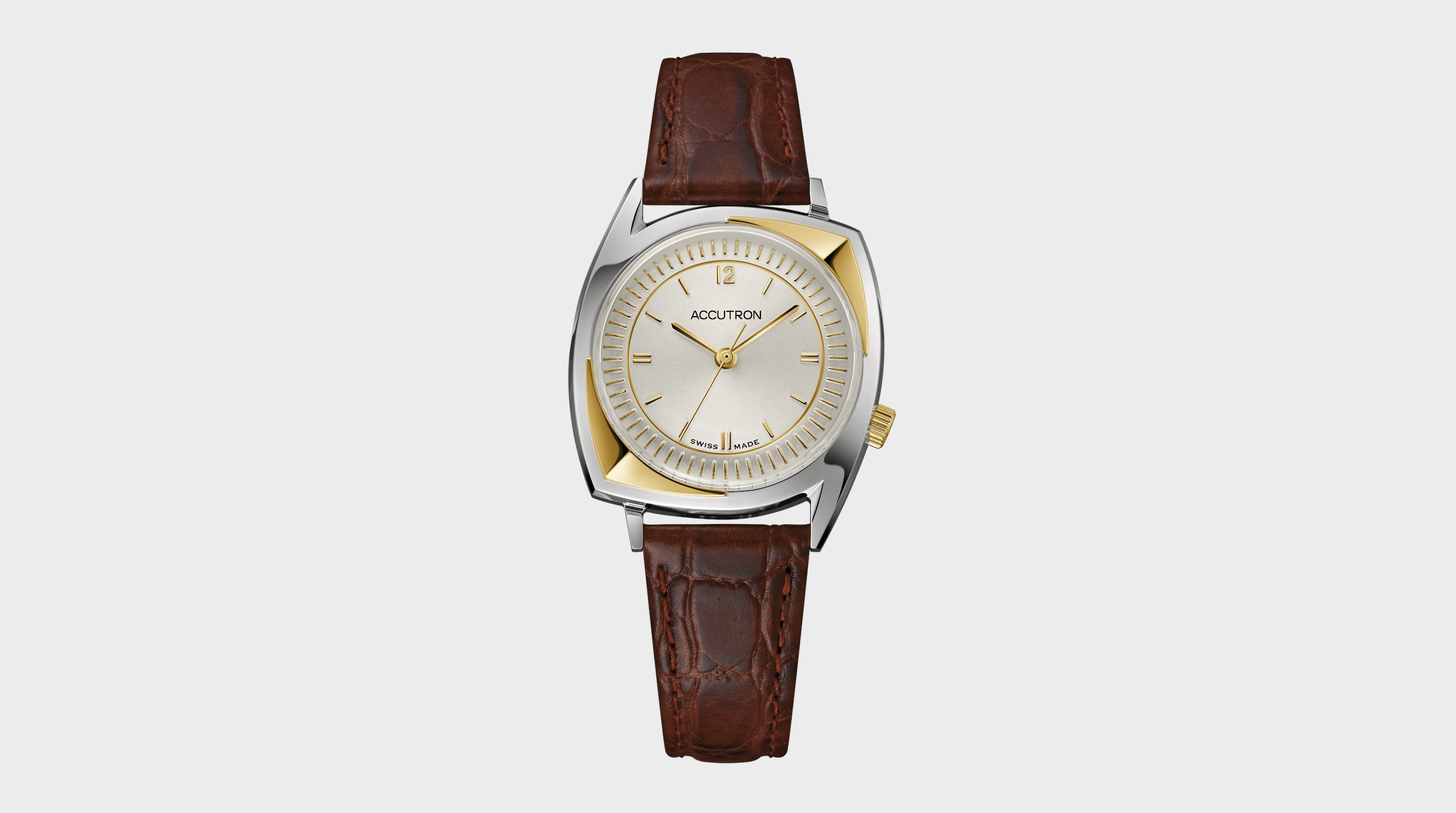
Photo via Accutron
Under $2,000: Accutron Legacy 2SW8A001
Accutron’s historically forward-thinking approach to watchmaking made it difficult for me to choose between the slick 2SW6B003 and this 2SW8A001. Both from the archive-motivated Legacy Collection, I went with the latter because it’s a prime example of Art Deco’s influence on ‘60s and ‘70s futurism. There’s just something so World’s Fair about it. Plus, the two-tone case and champagne dial ring true to the luxury utopian mindset that makes retrofuturism so enduring. It’s a watch that makes you happy. And for you horology buffs, the 26-jewel automatic movement is viewable via the caseback.
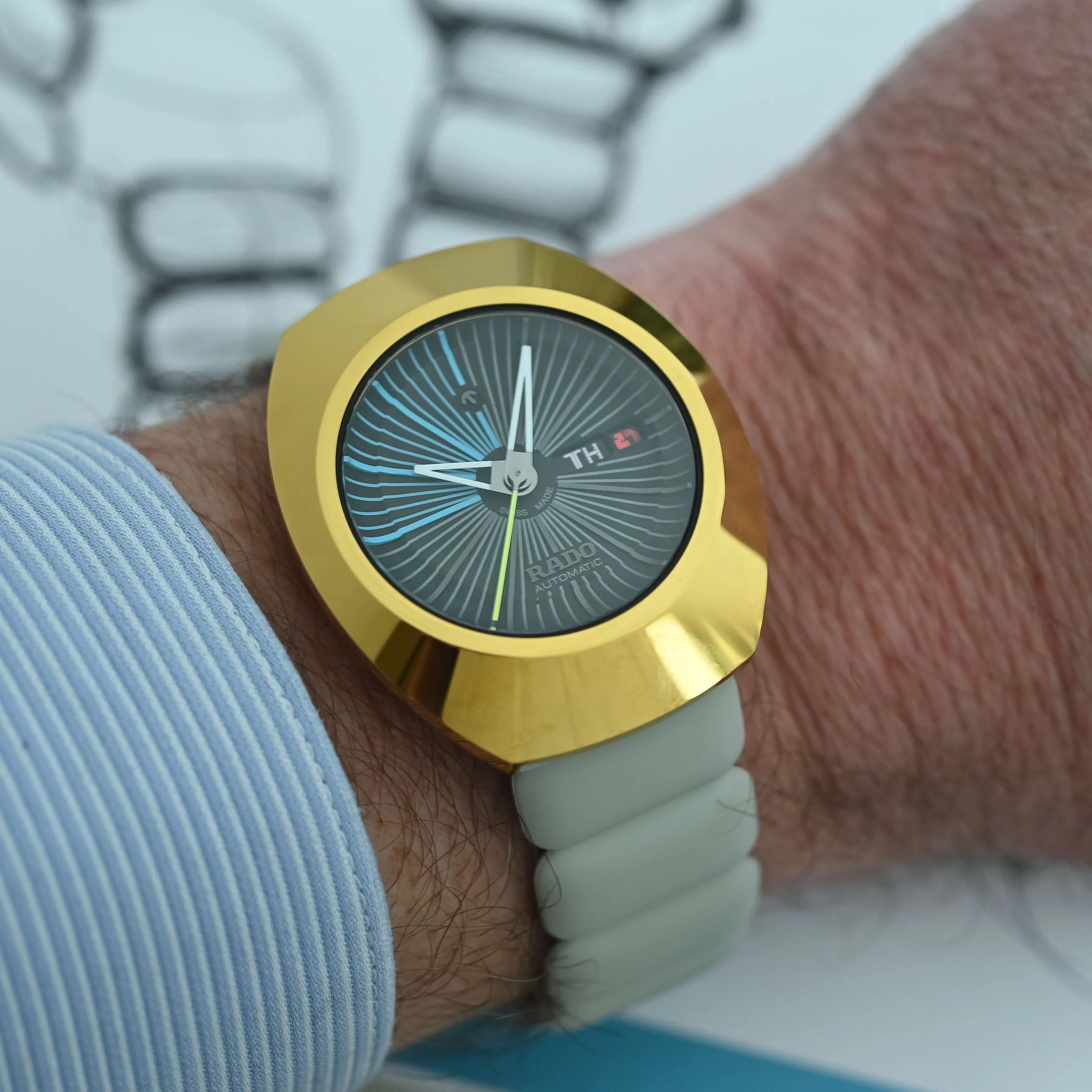
Photo via Rado
Under $3,000: Rado DiaStar Original X Tej Chauhan Special Edition
Imagine the Metropolis aesthetic (as in from the 1927 German film) sans the pessimism. I think of two things: The criminally underrated ‘90s Superman animated series and this Rado DiaStar. The case evokes gold, sharp lasers, and lights, while the silhouette and white rubber strap add a cloud-like softness. No surprise there. This watch’s acclaimed designer, Tej Chauhan, is known for adding humanity to often sterile futurism. Of course, Rado’s innovations are all present. The case, a composite material that combines ceramic-like hardness with the luster of metal, houses a precisely-engineered movement with an 80-hour power reserve.
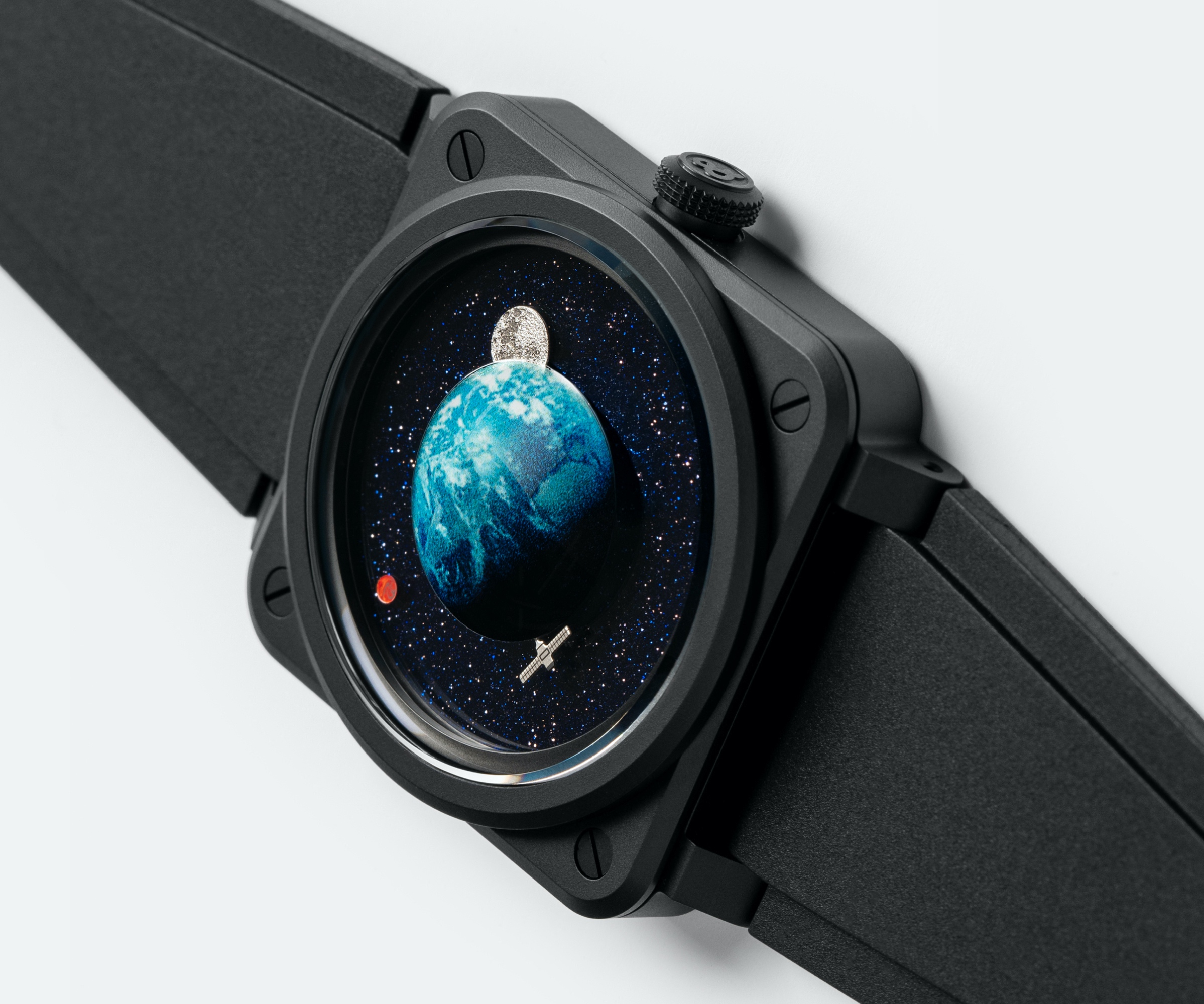
Under $5,000: Bell & Ross BR-03 Astro
There never would’ve been ‘50s and ‘60s futurism if not for space technology and travel. Inspired by what lies beyond Earth’s atmosphere, the Bell & Ross BR-03 Astro is the concept watch for interstellar heads. Yes, it’s a conversation piece. Nonetheless, good materials and technique prove it’s more than a gimmick. The dial is made from a blue aventurine plate, which is a piece of quartz that shimmers from added mica, bringing the stars to the cosmos. Planet Earth is exquisitely deep-set into the sapphire. Meanwhile, Mars represents the hour, the moon is the minute, and the satellite indicates the second. Flawless laser engraving ensures a high level of detail despite how small the applications are.
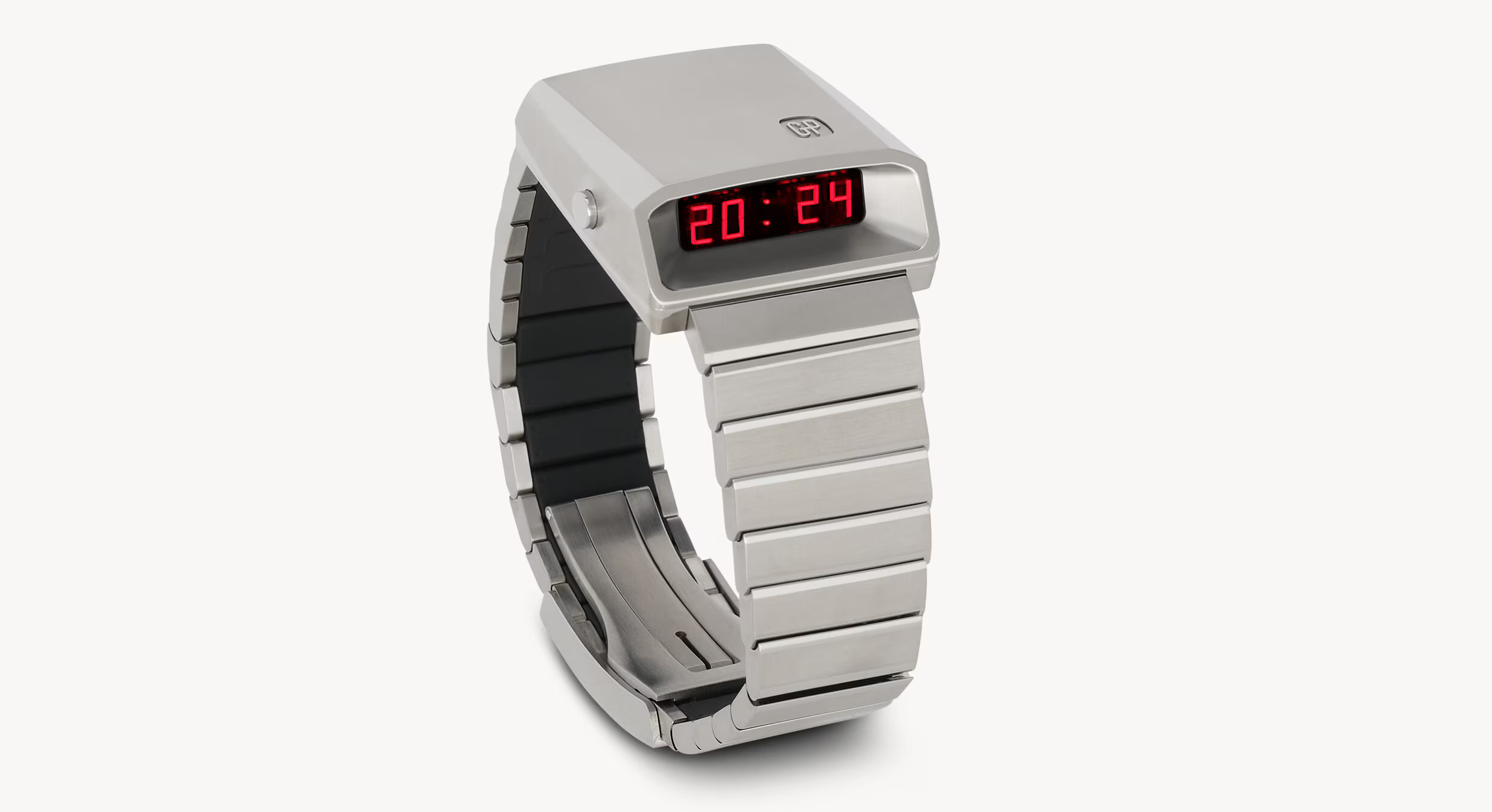
Photo via Girard-Perregaux
Under $10,000: Girard-Perregaux Casquette 2.0
The Casquette is an important watch for Girard-Perregaux. It launched in 1976, proving that the brand could pull off a well-built, popular, and distinct timepiece in the quartz space. And let’s be real; regardless of how you feel about quartz movements, retrofuturism and electronic watches are inextricably linked. The Casquette 2.0 is a revival of that emblematic model, this time with a scratch- and fade-resistant ceramic case and ergonomic bracelet. You might also consider Girard-Perregaux’s collaboration with Saint Laurent, which beautifully reimagines the watch in strong but lightweight titanium.
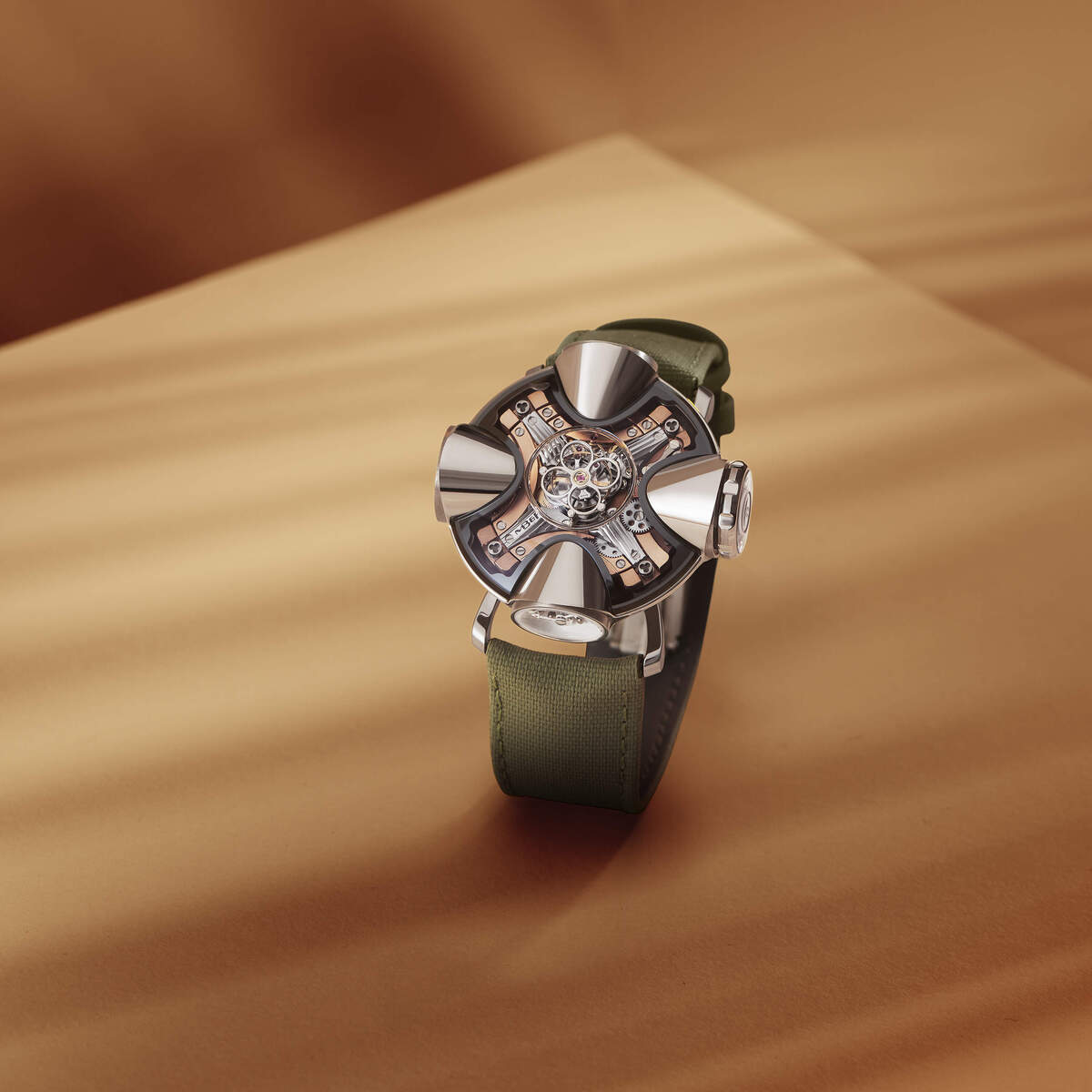
Photo via MB&F
Luxury Investment: MB&F Horological Machine HM11
Maximalist yet chic and technological yet elegant, the MB&F Horological Machine HM11 is a mini ecosystem on your wrist. The silhouette is reminiscent of the ‘50s concept of a flying saucer, impressively making the HM11 simultaneously retrofuturistic and purely futuristic. Conical gears send data to four compartments via the 364-piece tourbillon. Each “room on the spaceship,” so to speak, respectively broadcasts the time, the power reserve, the temperature, and the time-setter. Talk about wow factor.

